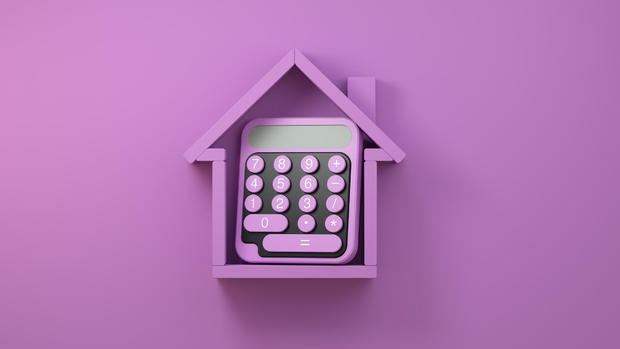Will home prices finally drop this fall? Experts weigh in
COVID-19 profoundly altered many aspects of American life, so it should come as no surprise that it impacted the housing market. During the pandemic, demand for new houses grew as people spent more time on their properties during lockdowns. Record-low mortgage rates also spurred a massive increase in competition for homes, even as inventory was falling because people didn't want to sell during a public health crisis.
With borrowers flooding the market and few houses available to buy, the average price of the typical home increased by 41% from January 2020 to August 2023, according to the Federal Reserve Bank of Chicago.
Unfortunately, the post-pandemic era ushered in further hardships, as the Federal Reserve repeatedly raised interest rates in light of surging inflation. This sent mortgage costs skyrocketing and created two problems for would-be buyers. Home loans were less affordable, and housing inventory declined as sellers decided they didn't want to list their properties and give up their low-rate loans.
"The systemic lack of inventory has created a double negative by reducing buyers' purchasing power and discouraging potential sellers, aggravating the already historically low inventory," says Leo Pareja, CEO of eXp Realty.
The big question is, will things get better this fall, or will future homeowners see their dreams derailed by continued high prices?
Ready to buy a home? Start comparing your top mortgage loan options online now.
Will home prices finally drop this fall?
Potential buyers hoping for more affordable home prices this fall are likely to be disappointed.
"House prices have remained high in most areas in spite of higher mortgage rates, which would normally have lowered demand," says Edward Coulson, professor of economics and public policy and director of the Center of Real Estate at UCI Paul Merage School of Business. "There is no reason to think that house prices will fall, especially if interest rates come down"
Worse, there is actually reason to believe prices will increase rather than decrease. Specifically, as new inflation data shows inflation is cooling, the Federal Reserve is expected to reduce the overnight rate at which banks borrow from each other. This is slated to happen as early as September, and in turn, is likely to reduce mortgage rates and drive up demand for properties, resulting in higher prices.
"This upcoming fall, I expect to see home prices trend very slightly upward as we expect to see mortgage rates drop again after the Fed meeting in September," Broker Sean Adu-Gyamfi of Coldwell Banker Warburg said. "Buyers that have been sidelined over the last year due to higher rates will begin to actively come back to the market. With that, we could see sellers raise their asking prices by about 2 - 4% more than in previous months."
Pareja's assessment of future pricing trends is similar. He believes prices are likely to remain stable or even increase due to a decline in mortgage rates. While Pareja explains that rates recently dropped 100 basis points compared with post-pandemic highs, further rate reductions are expected in the coming months and will likely increase demand.
"Once new interest rates are solidly in place, there will be more competition. If inventory does not increase, prices will trend upward because of the lower rates," Broker Bill Kowalczuk, of Coldwell Banker Warburg, says.
"On a $750,000 loan, a half-a-point decrease in rates would mean a $325 savings per month," Kowalczuk said. "Over five years, that's almost $20,000. That would be enough to get buyers off the fence. I think it's a good time for sellers unless inventory rises dramatically."
Melissa Cohn, regional vice president at William Raveis Mortgage, agrees.
"When mortgage rates fall and more buyers come back into the market, it is quite likely that prices will rise, especially in areas where the inventory is still somewhat limited," Cohn says.
Find out how affordable a mortgage loan could be for you today.
Some buyers may still find relief
While a broad decline in home prices likely isn't in the cards this fall for many would-be buyers, that doesn't mean that no future homeowners will see relief.
"What home prices do this fall will depend a lot on where you are," says Lisa Sturtevant, PhD and chief economist with Bright MLS. "In some places where home prices ran up particularly fast over the past few years and where inventory has been increasing quickly, we will see prices lower than they were a year ago. In most other markets, I am expecting home prices to be relatively flat compared to last year."
Sturtevant says that demand has remained strong and, that while inventory has increased slightly in recent months, it remains low by historical standards.
She also notes that while there are "no signs of a major home price drop," there remains seasonal variation in home costs.
"Prices traditionally fall seasonally from their summer peak through the winter and I expect we will see that seasonal pattern play out this year," Sturtevant says.
The bottom line
With home prices potentially set to increase, many future homeowners may not want to wait for mortgage rates to fall or wait for home prices to decline. Instead, they should move quickly to explore opportunities to get the lowest mortgage rate available today. Rates have already fallen in 2024 and many home loans with rates below 7.00% are available to qualified borrowers.
If you find the most affordable mortgage and purchase a home at today's prices, you'll find yourself better off in the coming months if prices increase as projected. You can always refinance your mortgage later, but you can't go back and buy at today's prices if they increase this fall.




